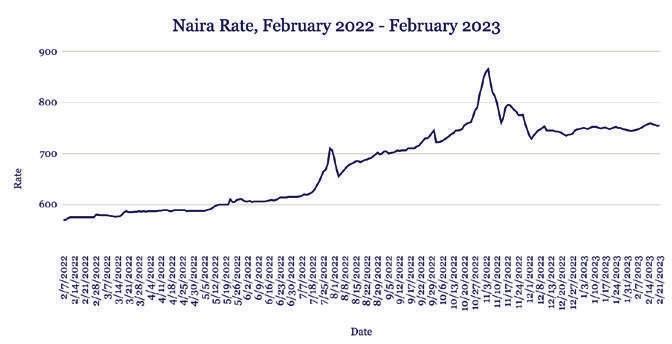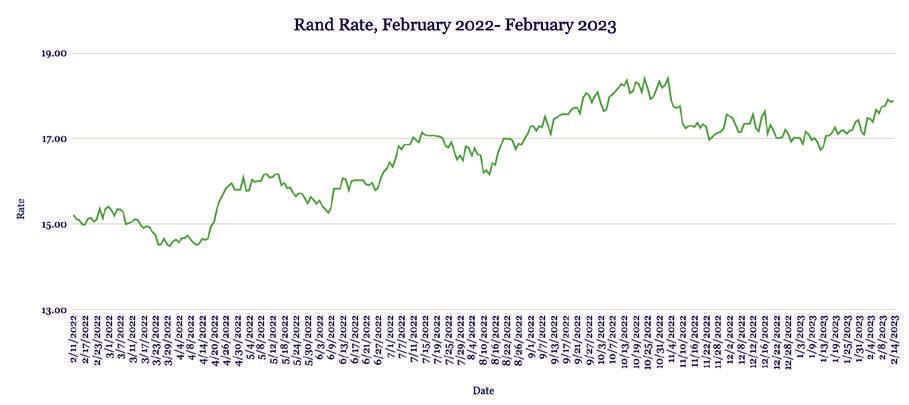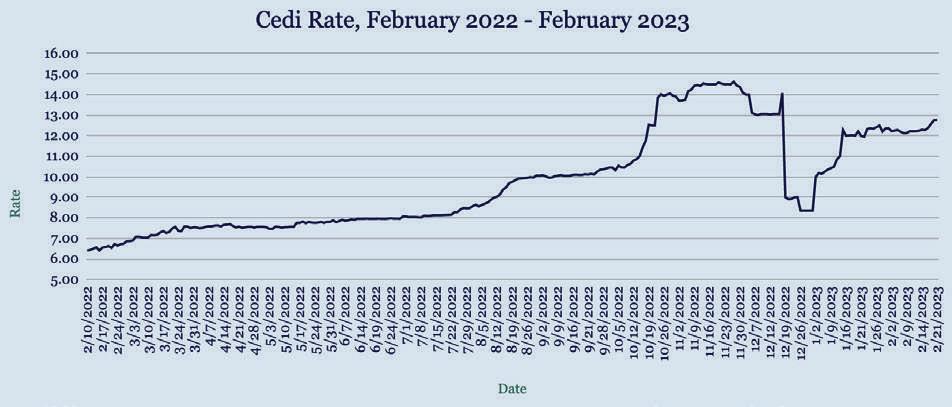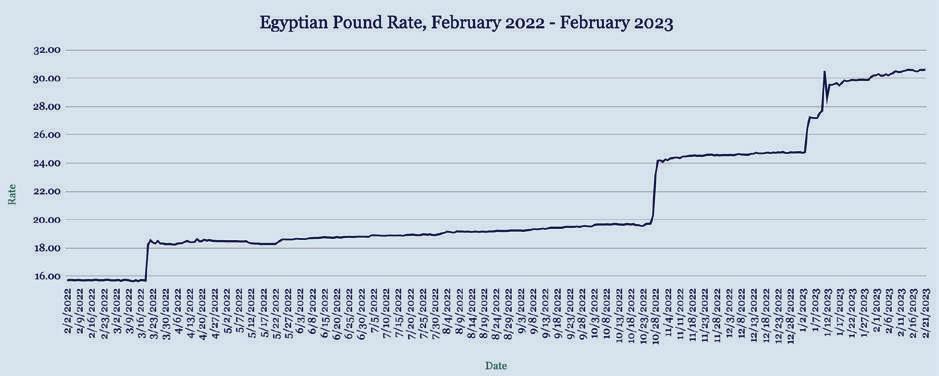
2 minute read
FX Insights

Forget Nigeria’s election: it’s the Naira shortage that markets are watching
Advertisement
As Nigerians prepare to go to the polls on Saturday to elect a new president, a cash shortage caused by a policy to exchange old Naira notes for newly designed bills continues to cripple the economy, creating a rift in the ruling All Progressives Congress (APC) party. The note swap plan championed by incumbent President Muhammadu Buhari has led to violent protests across the country and resulted in a temporary suspension of banking operations in some states. Several governors have petitioned th e Supreme Court to overturn the policy, citing severe hardship faced by people and businesses dependent on cash for survival.
Foreign Exchange Down
Rand sinks to lowest in more than 3 months

The Rand depreciated against the dollar, trading at 18.25 from 18.05 at last Friday’s close—its weakest level since early November. The currency is being dragged lower by broad risk-o sentiment globally and ongoing domestic concerns about the electricity crisis. In an e ort to ease concerns about Eskom’s nances, South Africa’s government said it will take on more than half of the power company’s debt over the next three years to help strengthen the balance sheet and avoid the risk of default. We expect the Rand to continue trading with an 18 handle in the near term, mainly due to the risk-o mood that is impacting emerging markets FX.

Buhari’s apparent intention behind the policy is to curb vote buying by politicians, turning a deaf ear to APC governors who have made repeated calls to postpone the implementation of the policy. Amid fears of the current tensions spilling over to political violence, Buhari said he’s mobilising military and security agents to monitor polling stations for evidence of vote rigging. The severe cash shortage has held the currency steady in spite of the economic turmoil, with the Naira strengthening marginally against the dollar to 755 from 756 at last week’s close. In this context, resolving the cash shortage has become more signi cant for the Naira outlook than the election result—with the rate likely to hold around current levels until Naira supplies recover.
Foreign Exchange
Down 18%
Foreign Exchange
Ghana’s latest ratings downgrade drives Cedi lower


The Cedi weakened against the dollar, trading at 12.76 from 12.38 at last week’s close as Fitch Ratings cut Ghana’s foreign currency credit rating to ‘restricted default’ after the country missed a $40.6m coupon payment on one of its outstanding Eurobonds. The downgrade aligns with Fitch’s local currency rating, which was cut earlier this month. The foreign debt default was largely expected after Ghana said it would suspend payments on certain bonds as part of its restructuring plan to unlock $3bn in emergency funding from the IMF. The country faces pushback from bondholders over preferential treatment for bilateral lenders, who are being o ered better terms in the debt restructuring. Against this backdrop—and with in ation remaining elevated despite a slight improvement in January—we expect the Cedi to depreciate further in the near term.
Egypt issues debut $1.5bn sukuk


The Pound depreciated against the dollar, trading at 30.60 from 30.48 at last week’s close, amid broader risk-o sentiment and a stronger dollar. Egypt this week issued its debut Islamic nance bond, or sukuk, raising $1.5bn. The three-year deal priced to yield 11%, having attracted investor demand of more than $5bn. The deal provides some relief to Egypt’s nance ministry given the country’s need to boost FX in ows and repay existing debt. We expect the Pound depreciate further in the week ahead mainly due to dollar strength.







